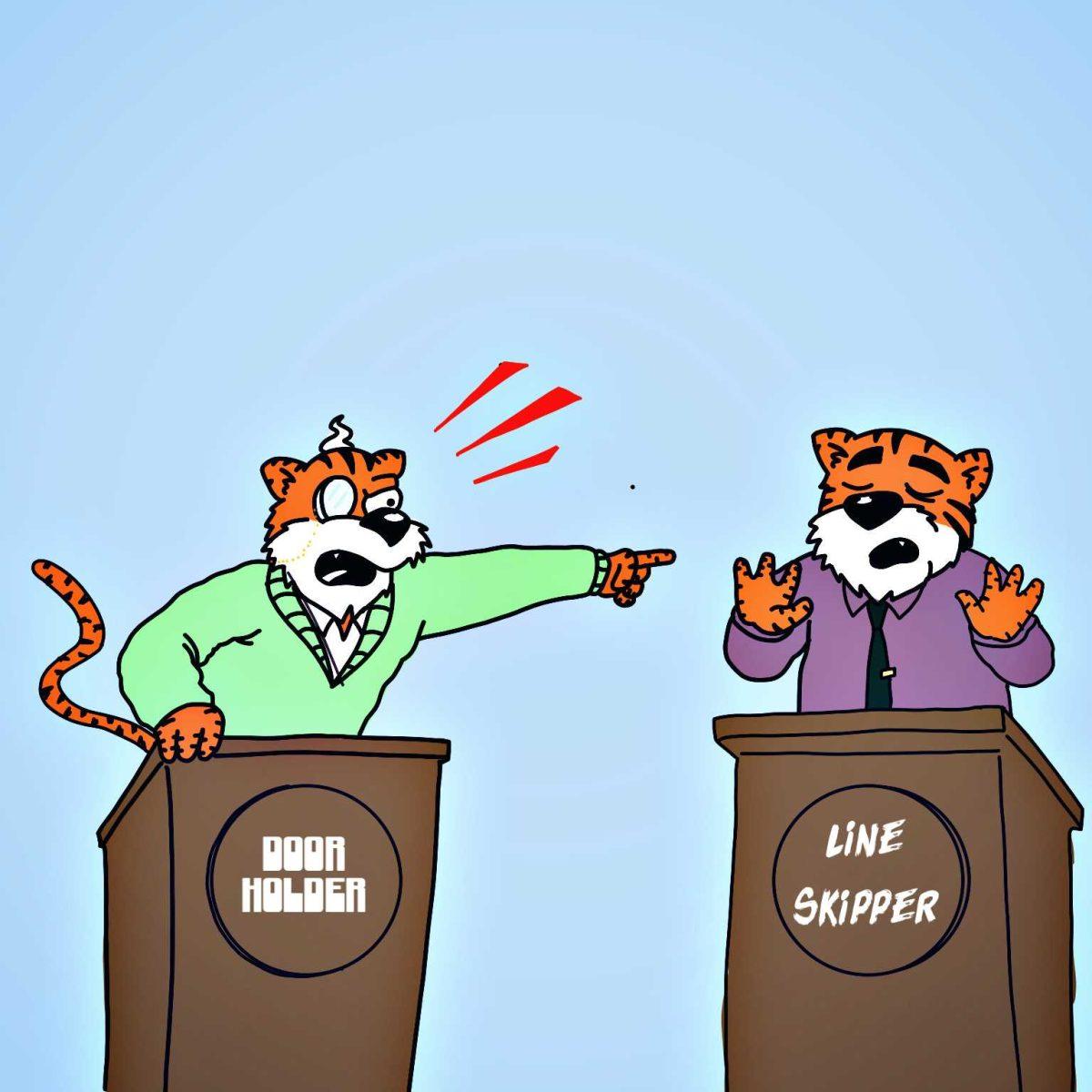My generation — Gen Z — has famously been discussed not as the ones who killed chivalry, but as the ones who were born after it died, and who grew up free of its many rules and rituals.
While this view is certainly exaggerated, it goes without saying that we live in a post-chivalric world in which the quaint social codes of old can no longer be taken for granted.
In a time when cultural norms are characterized by their evanescence and dynamism, it should come as no surprise that Gen Z’s relationship to chivalry is incredibly complicated.
Over the break, I stumbled across a fascinating Twitter thread requesting that men stop engaging in traditional acts of chivalry like opening doors and lending their seats for women. The author of the thread argued her case by stating that the concept of male chivalry implies that women are weak and in need of assistance even for the most mundane tasks.
Obviously, in most cases, no man in his right mind opens a door because he thinks a woman is unable to do so herself — though one might argue the simple gesture is an outward expression of more troublesome assumptions about power dynamics between genders.
Until rather recently I held similar opinions on chivalry. I saw it as an obnoxious flex of masculine vanity; an age-old convention disguising misogynistic power trips and virtue-signaling with the appearance of altruism.
Admittedly, in some instances, this may very well be the case. However, I am not as eager to take such a dismissive approach to the subject as I was before.
In a brilliant essay called “The Necessity of Chivalry,” author and philosopher C.S. Lewis examines the historical origins of chivalry, tracing modern practices back to the ideals of medieval knighthood.
Lewis argues that chivalry is a social necessity because of the paradoxical demand it makes on masculinity; its healthy synthesis of aggression and tenderness.
A man formed with chivalric values is neither a coward nor a hothead — a crippling dichotomy that ran rampant in the early Middle Ages — but rather an individual who is capable of channeling both strength and consideration when appropriate. Lewis understands chivalry as seeking not to condescend and coddle women but to improve upon masculinity.
Assuming that Lewis is correct, I cannot help but wonder whether my previous intuitions about chivalric conventions were actually onto something. His analysis seems to suggest that chivalry is indeed a one-way street, meant to benefit men without much regard for how women feel about it.
As a man myself, I was naturally interested in gauging the thoughts of my female peers. I reached out to a number of friends with varying sociopolitical outlooks and was shocked to meet such unwavering enthusiasm in favor of chivalric traditions.
The majority of women I talked to shared no experience of feeling belittled by chivalry; rather, they claimed the opposite to be true.
Although these anecdotes are by no means meant to suffice as a definitive survey of my generation’s attitudes toward chivalry, they serve as an interesting glimpse into some common perspectives.
The age of traditional chivalric values is dead and likely beyond any hope of resuscitation. It would be naïve to think that any given man could go on a date with a woman he just met and assume that holding doors open, lending seats and paying the check would be seen as attractive or normal.
However, there still seems to be room for a more nuanced, individualized approach to chivalry, which places emphasis not on some grand social code with centuries of cultural baggage but rather on personal expressions of solidarity and service.
Evan Leonhard is a 20-year-old English and Philosophy major from New Orleans.
Opinion: Chivalry may not be dead after all
January 12, 2021
Chivalry Debate








